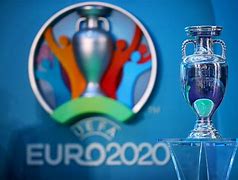Introduction
The UEFA European Championship, more commonly known as the Euros, is one of the most prestigious football tournaments in the world. Held every four years, it brings together the best national teams from across Europe to compete for the coveted title. After a yearlong delay due to the COVID19 pandemic, Euro 2020 finally kicked off in June 2021, captivating football fans around the globe. As the tournament approaches its climax, the question on everyone's lips is: when does Euro 2020 end?
The Road to the Final

Euro 2020 commenced on June 11, 2021, with a total of 24 teams vying for glory. The group stage, featuring six groups of four teams each, concluded on June 23, 2021. The top two teams from each group, along with the four best thirdplaced teams, advanced to the round of 16. This knockout phase began on June 26, 2021, and saw the field whittled down to the final eight teams.
The quarterfinals took place on July 2 and 3, 2021, with the semifinals scheduled for July 6 and 7, 2021. As the tournament progresses, the intensity and excitement continue to build, with each match bringing the teams one step closer to the ultimate prize.
The Final Showdown
The Euro 2020 final is set to take place on July 11, 2021. The date marks the culmination of a monthlong football extravaganza, with millions of fans eagerly anticipating the crowning of the new European champion. The final will be held at Wembley Stadium in London, England, a fitting venue for such a momentous occasion.
Wembley Stadium, with a seating capacity of 90,000, is the largest stadium in the United Kingdom and one of the most iconic football venues in the world. Its rich history and electric atmosphere make it the perfect setting for the Euro 2020 final. The stadium has already hosted several matches during the tournament, including the semifinals, ensuring that it is primed and ready for the grand finale.
The Contenders
As the tournament reaches its final stages, several teams have emerged as strong contenders for the title. Defending champions Portugal, led by the indomitable Cristiano Ronaldo, have showcased their prowess on the field. However, they face stiff competition from the likes of world champions France, led by the formidable Kylian Mbappe, and a resurgent Germany, under the guidance of coach Joachim Low.
Other teams, such as Belgium, Spain, and Italy, have also impressed with their performances, making it difficult to predict a clear favorite. The unpredictability of the Euros is part of what makes it such an enthralling tournament, with underdogs often causing upsets and turning the tide in their favor.
The Impact of COVID19
The COVID19 pandemic has undoubtedly had a significant impact on Euro 2020. The tournament was initially scheduled for 2020 but was postponed by a year due to the global health crisis. Even with the rescheduled dates, the tournament has faced numerous challenges, including strict health protocols, limited fan attendance, and the threat of matches being postponed due to positive COVID19 cases.
Despite these obstacles, Euro 2020 has managed to persevere, providing a muchneeded distraction and source of entertainment for football fans worldwide. The resilience and adaptability of the organizers, teams, and fans have been commendable, ensuring that the spirit of the Euros remains intact.
Conclusion
As the clock ticks down to the Euro 2020 final on July 11, 2021, the excitement and anticipation continue to grow. The tournament has been a rollercoaster of emotions, with moments of brilliance, heartbreak, and everything in between. Regardless of which team emerges victorious, Euro 2020 will be remembered as a testament to the resilience of the beautiful game and its ability to unite people in times of adversity.
So, when does Euro 2020 end? The answer is simple: it ends with the final whistle on July 11, 2021, at Wembley Stadium, where a new European champion will be crowned. Until then, fans around the world will continue to revel in the drama, passion, and sheer joy that only the Euros can provide.